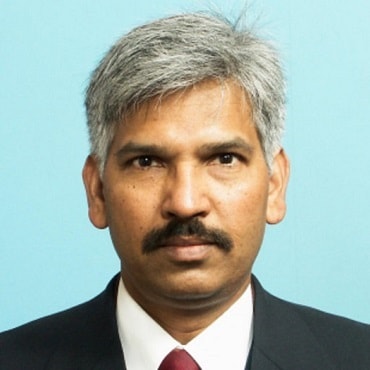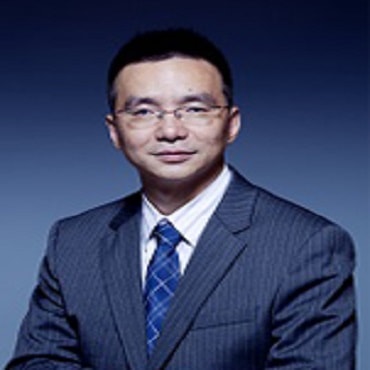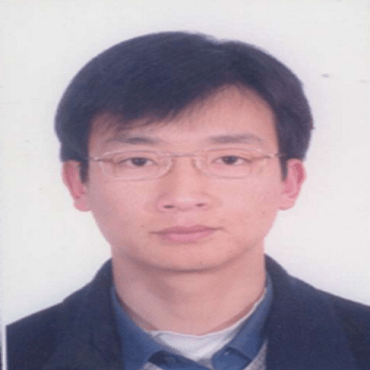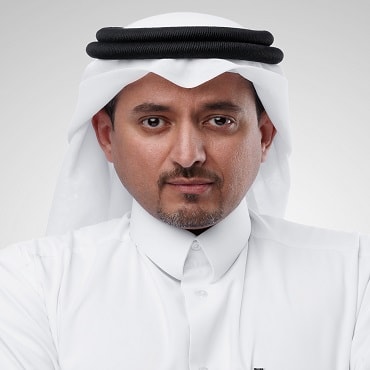
Mechatronics 2019

Theme: Enduring inclinations and Leading edge advances in Automation and Robotics
Mechatronics 2019 scheduled in Singapore City, Singapore during September 18-19, 2019 is a gathering of scientists, mechanical engineers, eesearchers, electrical engineers, computer science engineers, gaming professionals, smart innovators, young researchers, business delegates etc. Mechatronics 2019 will emphasize on the theme "Enduring Inclinations and Leading Edge Advances in Automation and Robotics." This Congress will serve an excellent experience and opportunity to enhance one's career. This mechatronics conference / summit includes a wide range of keynote presentations, symposium, workshops, exhibitions, poster presentations and video presentation. Meetings International associates with several national & international associations, and eminent personalities dedicated to hosting world-class conferences and scientific events. It supports broad scope research and peer review at a broad range of scientists around the globe. The strategic goal of Mechatronics 2019 is to encourage the synergistic incorporation of diverse disciplines, such as mechanical engineering, electrical engineering, manufacturing engineering, computer and software engineering, and artificial and computational intelligence, which shape the important segments of current smart mechatronics, robotics, and automation systems.
Target Audience for Mechatronics Conference 2019:
- Researchers
- Scientists
- Professors
- Students
- Space science Engineers
- Smart innovators
- Mechanical Engineers
- Electrical engineers
- Robotic technologist
- Computer science engineers
- Automation industry leaders
- Gaming professionals
- Design Engineers
- Defence Research Professionals
- Managers & Business Intelligence Experts
- Advertising and Promotion Agency Executives
- Professionals in the media sector
- Healthcare service providers
Why to attend Mechatronics Conference 2019?
The conference throws light on thought-provoking topics and recent research in the field of Mechanical Engineering, Electrical and Electronics Engineering, Computer Engineering, Automation, Sensors, Robotics, Control Systems and many more. We believe that Mechatronics 2019 will be performed in a hot and friendly atmosphere full of scientific, cultural and social activities. Specifically, this conference will motivate junior and youthful delegates by associating with experts in their scientific fields and by encouraging them and improving their confidence in exhibiting research on an international platform.
- Sharpen your skills.
- Meet experts and influencers face-to-face.
- Learn in a new space, Network.
- Explore new ways of working.
- Get greater focus.
- Learn new information from presenters.
- Networking with new people within your field.
- The ability to share your ideas and get immediate feedback from credible individuals.
- To expand your knowledge and find solutions to problems.
- To present your ideas and work to others.
- Get out of dodge and just have fun.
We are pleased to invite prospective authors to submit their original contributions to Mechatronics 2019 Conference, where you are sure to have a meaningful experience with scholars from around the world.
Session 1: Mechatronics
Mechatronics is an energizing, multi-disciplinary field of engineering that incorporates a blend of system engineering, mechanical engineering, electrical engineering, telecommunications engineering, control engineering and computer engineering.
It includes the research, design, implementation, and maintenance of intelligent engineered products and processes enabled by the reconciliation of mechanical, electronic, computer and software engineering technologies. Examples of mechatronic systems are antilock braking systems (ABS), robots, digitally controlled combustion engines, machine tools with self-adaptive tools, contact-free magnetic bearings and automated guided vehicles.
Mechatronics and System Engineering Conference | Mechatronics and System Engineering Workshop | Global Mechatronics Conference | Mechatronics Symposium | Mechatronics and System Engineering Congress | Mechatronics and System Engineering Seminar | Annual Mechatronics Meeting | American Mechatronics and System Engineering Conference | European Mechatronics and System Engineering Conference | Asian Mechatronics and System Engineering Conference.
Session 2: System Engineering
System Engineering coordinates all the disciplines and speciality groups into a team effort forming a structured development process that proceeds from concept to production to operation. System Engineering considers both the business and the technical needs of all clients with the objective of giving a quality item that meets the client needs.
Technical systems, be the customer items or industrial systems for process and production control, have an expanding requirement for intelligent control. By extending mechanical solutions with sensors and electronics there are conceivable outcomes to create not only new functions but also make these new solutions viable and applies to quality and safety requirements, cost reductions and environmental demands. The challenge lies in making the control of these systems accurate (precise), fast and yet robust and flexible.
Mechatronics and System Engineering Conference | Mechatronics and System Engineering Workshop | Global Mechatronics Conference | Mechatronics Symposium | Mechatronics and System Engineering Congress | Mechatronics and System Engineering Seminar | Annual Mechatronics Meeting | American Mechatronics and System Engineering Conference | European Mechatronics and System Engineering Conference | Asian Mechatronics and System Engineering Conference.
Session 3: Microcontroller
A microcontroller is the focal point of a mechatronics system. The cost of the controller is directly proportional to its capabilities such as clock speed, number of I/O pins, physical size, RAM, and memory. Many of the microcontrollers in the market have to be programmed with a low-level language such as assembly programming.
Mechatronics and System Engineering Conference | Mechatronics and System Engineering Workshop | Global Mechatronics Conference | Mechatronics Symposium | Mechatronics and System Engineering Congress | Mechatronics and System Engineering Seminar | Annual Mechatronics Meeting | American Mechatronics and System Engineering Conference | European Mechatronics and System Engineering Conference | Asian Mechatronics and System Engineering Conference.
Session 4: The Relevant Technology Applications of Mechatronics
- Smart Consumer Products: Home security, camera, microwave oven, toaster, dishwasher, laundry washer-dryer, climate control units, etc.
- Medical: Implant-devices, assisted surgery, haptic, etc.
- Defense: Unmanned air, ground, and underwater vehicles, smart munitions, jet engines, etc.
- Manufacturing: Robotics, machines, processes, etc.
- Automotive: Climate control, antilock brake, active suspension, cruise control, airbags, engine management, safety, etc.
- Network-centric, Distributed Systems: Distributed robotics, telerobotics, intelligent highways, etc.
Mechatronics and System Engineering Conference | Mechatronics and System Engineering Workshop | Global Mechatronics Conference | Mechatronics Symposium | Mechatronics and System Engineering Congress | Mechatronics and System Engineering Seminar | Annual Mechatronics Meeting | American Mechatronics and System Engineering Conference | European Mechatronics and System Engineering Conference | Asian Mechatronics and System Engineering Conference.
Session 5: IOT (Internet Of Things)
With today’s integration of IoT processes and equipment, traditional disciplines are merging and the benefits are seen through-out the machine life cycle. The design phase is shortened with cross-discipline communication, design development, and project management tools. Procurement and build cycles are shortened due to the need for fewer components along with the use of online configuration and purchasing tools. With IoT connected programming and real-time analytics, ease of use, maintenance, and overall life are increased for the user. All of these things combine adding to the bottom line, creating more opportunity and increasing financial returns.
Mechatronics and System Engineering Conference | Mechatronics and System Engineering Workshop | Global Mechatronics Conference | Mechatronics Symposium | Mechatronics and System Engineering Congress | Mechatronics and System Engineering Seminar | Annual Mechatronics Meeting | American Mechatronics and System Engineering Conference | European Mechatronics and System Engineering Conference | Asian Mechatronics and System Engineering Conference.
Session 6: Robotics: New Approaches in Automation
In order to build autonomous robots that can carry out useful work in unstructured environments, new approaches have been developed for building intelligent systems. The relationship to traditional academic robotics and traditional artificial intelligence is examined. In the new approaches, a tight coupling of sensing to action produces architectures for intelligence that are networks of simple computational elements which are quite broad, but not very deep. Recent work within this approach has demonstrated the use of representations, expectations, plans, goals, and learning, but without resorting to the traditional uses of central, abstractly manipulable or symbolic representations. The perception within these systems is often an active process, and the dynamics of the interactions with the world are extremely important. The question of how to evaluate and compare the new to traditional work still provokes vigorous discussion.
Mechatronics and System Engineering Conference | Mechatronics and System Engineering Workshop | Global Mechatronics Conference | Mechatronics Symposium | Mechatronics and System Engineering Congress | Mechatronics and System Engineering Seminar | Annual Mechatronics Meeting | American Mechatronics and System Engineering Conference | European Mechatronics and System Engineering Conference | Asian Mechatronics and System Engineering Conference.
Session 7: Autonomous Technology
Autonomous technology is a class of technology that can respond to real-world conditions without help. By definition, robots are autonomous or semi-autonomous. As such, the term autonomous technology is often applied to things that are technically robots but don't look like robots. The following are illustrative examples of autonomous technology.
- Space: A space probe that is able to deal with the surface of a planet to collect samples. For example, if the ground is too hard for digging, the probe will decide to move an area that looks softer.
- Infrastructure: A dam that can autonomously respond to conditions to maintain water levels in reservoirs and prevent flooding.
- Transportation: A small cart that is able to navigate sidewalks, people, and traffic to make a last mile package delivery to a customer.
- Agriculture: A vertical garden system that can handle variable conditions. For example, if a plant looks like its unhealthy the system might try a variety of things to try to save it.
- Automation: An artificial intelligence that resembles a conveyor belt that can automatically find reusable and recyclable materials in the garbage.
- Home Automation: A vacuum cleaner that can navigate irregular spaces, people, and pets to clean a floor.
- Architecture: Windows that autonomously adapt to light levels to achieve goals such as heating, cooling, growing plants or achieving indoor light parameters set by users.
Mechatronics and System Engineering Conference | Mechatronics and System Engineering Workshop | Global Mechatronics Conference | Mechatronics Symposium | Mechatronics and System Engineering Congress | Mechatronics and System Engineering Seminar | Annual Mechatronics Meeting | American Mechatronics and System Engineering Conference | European Mechatronics and System Engineering Conference | Asian Mechatronics and System Engineering Conference.
Session 8: Machine Vision System
A machine vision system (MVS) is a type of technology that enables a computing device to inspect, evaluate and identify still or moving images. It is a field in computer vision and is quite similar to surveillance cameras, but provides the automatic image capturing, evaluation and processing capabilities.
Machine vision system is a sensor used in the robots for viewing and recognizing an object with the help of a computer. It is mostly used in the industrial robots for inspection purposes. This system is also known as artificial vision or computer vision. It has several components such as a camera, digital computer, digitizing hardware, and an interface hardware & software. The machine vision process includes three important tasks, namely:
- Sensing & Digitizing Image Data
- Image Processing & Analysis
Applications:
It is more about specific applications than it is about techniques. Machine Vision refers to the industrial use of vision for automatic inspection, process control, and robot guidance.
Mechatronics and System Engineering Conference | Mechatronics and System Engineering Workshop | Global Mechatronics Conference | Mechatronics Symposium | Mechatronics and System Engineering Congress | Mechatronics and System Engineering Seminar | Annual Mechatronics Meeting | American Mechatronics and System Engineering Conference | European Mechatronics and System Engineering Conference | Asian Mechatronics and System Engineering Conference.
Session 9: Sensing and Control Systems
Sensors represent an indispensable element in modern mechatronic systems. Convergence of enabling technologies such as the Internet, communications, information technology and miniaturization technology combined with broadening applications arc driving vigorous research and development of new sensors. New sensor technologies bring paradigm shifts in the way we design engineering and mechatronic systems.
Sensors are applied in mechatronic systems for a variety of reasons.
A non-exhaustive list of sensor usages includes data acquisition, monitoring, and recording, failure detection and health monitoring, Identification and state estimation, decision making and control.
Mechatronics and System Engineering Conference | Mechatronics and System Engineering Workshop | Global Mechatronics Conference | Mechatronics Symposium | Mechatronics and System Engineering Congress | Mechatronics and System Engineering Seminar | Annual Mechatronics Meeting | American Mechatronics and System Engineering Conference | European Mechatronics and System Engineering Conference | Asian Mechatronics and System Engineering Conference.
Session 10: Biomechatronics
Biomechatronics is the science concerned with the internal and external forces acting on the human body and the effects produced by these forces. More specifically, biomechatronics is the study of human movement and describes the forces which cause this movement.
Biomechatronics is closely related to engineering, because it often uses traditional engineering sciences to analyse biological systems.
Applied mechanics, most notably mechanical engineering disciplines such as continuum mechanics, mechanism analysis, structural analysis, kinematics and dynamics play prominent roles in the study of biomechatronics.
Session 11: Optomechatronics
Optomechatronics is a specialized field combining many expertise areas and is widely present in the High-Tech industry. This track is an excellent start to becoming a multi-disciplinary researcher or system designer in optomechatronics.
In recent years, optical technology has been incorporated into mechatronic systems at an accelerated rate, and as a result, a great number of machines/systems with smart optical components have been introduced. This integrated technology is termed optomechatronics.
Session 12: Electrical Engineering
The potential for generating added value in industrial manufacturing is moving increasingly in the direction of electronics and software development. The specialization in electrical engineering accordingly has a focus on electrodynamics and electromechanical simulation in addition to such fields as industrial electronics, drive systems, and programming.
Some electrical engineers design complex power systems on a macroscopic level. Electrical engineers also design microscopic electronic devices and electronic circuitry, which achieved the record-setting length of 1 nanometre for a single logic gate.
Electrical engineering is a professional engineering discipline that generally deals with the study and application of electricity, electronics, and electromagnetism. This field first became an identifiable occupation in the latter half of the 19th century after commercialization of the electric telegraph, the telephone, and electric power distribution and use. Subsequently, broadcasting and recording media made electronics part of daily life.
Mechatronics and System Engineering Conference | Mechatronics and System Engineering Workshop | Global Mechatronics Conference | Mechatronics Symposium | Mechatronics and System Engineering Congress | Mechatronics and System Engineering Seminar | Annual Mechatronics Meeting | American Mechatronics and System Engineering Conference | European Mechatronics and System Engineering Conference | Asian Mechatronics and System Engineering Conference.
Session 13: Mechanical Engineering
The specialization in mechanical erngineering prepares graduates for the challenges of modern mechanical engineering. The focus here is on simulation, hydraulics, pneumatics and material sciences, and also on mechanics, machine dynamics and handling technology.
The engineering field requires an understanding of core concepts including mechanics, kinematics, thermodynamics, materials science, and structural analysis. Mechanical engineers use these core principles along with tools like computer-aided engineering and product lifecycle management to design and analyse manufacturing plants, industrial equipment and machinery, heating and cooling systems, transport systems, aircraft, watercraft, robotics, medical devices and more.
Mechatronics and System Engineering Conference | Mechatronics and System Engineering Workshop | Global Mechatronics Conference | Mechatronics Symposium | Mechatronics and System Engineering Congress | Mechatronics and System Engineering Seminar | Annual Mechatronics Meeting | American Mechatronics and System Engineering Conference | European Mechatronics and System Engineering Conference | Asian Mechatronics and System Engineering Conference.
MARKET ANALYSIS:
- According to technology review, a magazine focused on new technologies, published by the Massachusetts Institute of Technology (MIT), mechatronics is "one of the 10 emerging technologies that will change the world".
- It creates an enormous impact on the industry, economic development, and consumer products.
- The most important one is that mechatronics is very interdisciplinary. It involves the areas of electrical engineering, mechanical engineering, computer engineering and computer science in an integrated fashion.
- AI In mechatronics market insights
The demand for artificial intelligence in mechatronics is expected to grow at a high CAGR over the forecast period. Mechatronics is an integration of mechanical engineering and electronics. Artificial intelligence has gained wide preference in the market over the past few years. The increasing need for computer systems and machines to function in a similar way as humans are expected to drive artificial intelligence in mechatronics over the coming years.
- The global mechatronics and robotics courses market is expected to grow at a CAGR of more than 15%, owing to the rapid adoption of robotic and mechatronic technologies in the industrial sector, particularly in the automotive industry.
The report, Global Mechatronics and Robotics Courses Market 2017-2021 have been prepared based on an in-depth market analysis with inputs from industry experts. The report covers the market landscape and its growth prospects over the coming years. The report also includes a discussion of the key vendors operating in this market.
List of Major Associations and Societies on Mechatronics:
- Accreditation Board for Engineering and Technology
- National Society of Professional Engineers
- America Society for Engineering Education
- American Institute of Aeronautics and Astronautic
- American Society of Civil Engineers
- Engineering Management Career
Scope and Importance:
If you see the things around you, most of them are made up of the combination of mechanical electronics, and the future will comprise of the combinations of different fields, a single field can’t dominate. We are entering in a Digital world in which electronics are going to play a vital role mainly in communication instruction and all other, but the actual work is going to done by mechanical machines whoever controls them. So you can now realize how much important is mechatronics in the upcoming future for at least for next 25 years till the time we develop the artificial intelligence.
The top three emerging market trends driving the global mechatronics, according to Technavio research analysts are:
- The increased popularity of mechatronics and robotics workshops.
- The increased popularity of task-based learning.
- The advent of modular mechatronics training modules.
Conclusion:
Mechatronics is a rapidly growing field that integrates electronics, mechanics, pneumatics, hydraulics, and computer control systems to create new and improved automated manufacturing production systems. This conference is designed for mechanical engineers, electrical and electronics engineers, computer engineers, smart innovators, gaming professionals, design engineers, defense research professionals, and for people who are interested in plant maintenance, set up, installation, and assembly. Mechatronics 2019 is designed to reinforce the core technical skills and real-world application needed in today’s manufacturing environment.
- Mechatronics
- System Engineering
- Microcontroller
- The Relevant Technology Applications of Mechatronics
- IOT (Internet Of Things)
- Robotics: New Approaches in Automation
- Autonomous Technology
- Machine Vision System
- Sensing and Control Systems
- Biomechatronics
- Optomechatronics
- Electrical Engineering
- Mechanical Engineering
- Journal of Electrical Engineering and Electronic Technology
- Research Journal of Optics and Photonics
2 Organizing Committee Members
6 Renowned Speakers
Wataru Kase
Professor, Osaka Institute of Technology
Japan
Yugong Luo
Professor, Tsinghua University
China
Bin Zhang
Professor, Zhejiang University
China
Qi Zhong
Ph. D, Zhejiang University
China
Ahmed Abdellatif Hamed Ibrahim
Associate Professor, Arab Academy for Science and Technology and Maritime Transport
Egypt
Mohammed Yousef A Alqaradawi
Professor, Qatar University
Qatar




























































































































